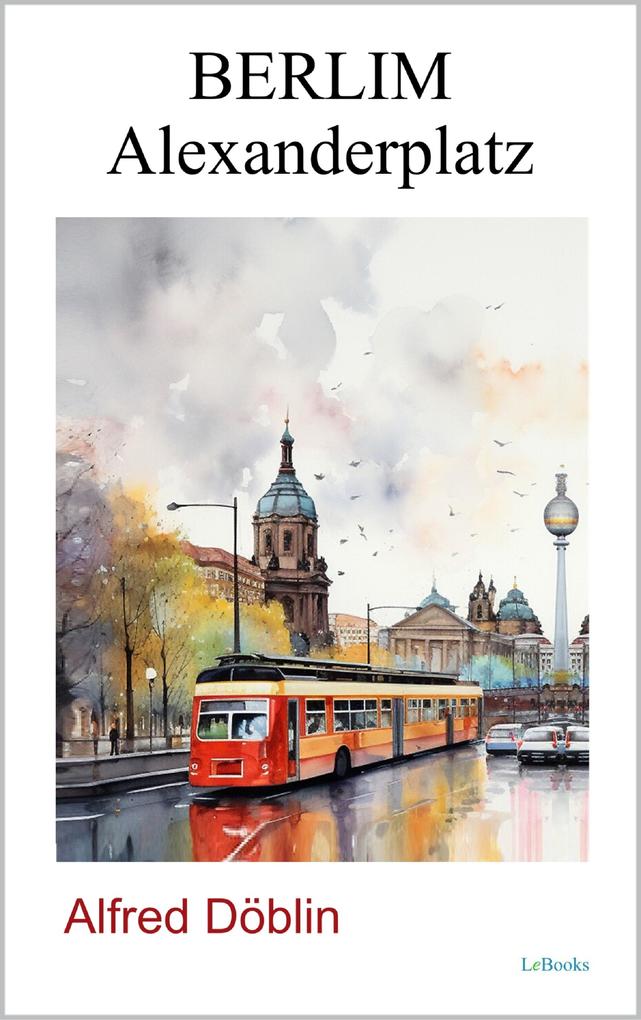Bücher versandkostenfrei*100 Tage RückgaberechtAbholung in der Wunschfiliale

Sofort lieferbar (Download)
Berlin Alexanderplatz is a profound exploration of human struggle, moral ambiguity, and the societal pressures shaping individual lives. Alfred Döblin vividly portrays the challenges faced by Franz Biberkopf, a man recently released from prison, as he navigates the complexities of life in the chaotic urban landscape of Weimar-era Berlin. The novel delves into themes of redemption, the fragility of human will, and the often-overwhelming influence of external forces on personal choices.
Through its fragmented narrative style and innovative use of stream-of-consciousness, Berlin Alexanderplatz breaks traditional storytelling conventions, reflecting the disorienting and turbulent reality of modern urban existence. Döblin employs a blend of raw realism and poetic imagery, capturing the vibrant yet oppressive atmosphere of Berlin and the diverse lives it encompasses.
Since its publication, Berlin Alexanderplatz has been celebrated as a milestone in modernist literature, inspiring numerous adaptations, including films and television series. The novel's portrayal of existential struggles, societal alienation, and the search for meaning resonates deeply, remaining a touchstone for discussions about identity and morality.
The work continues to hold relevance for its unflinching depiction of the human condition and its critique of societal inequalities. By examining the intersection of individual agency and systemic forces, Berlin Alexanderplatz offers timeless insights into the challenges of self-determination and the enduring quest for dignity amidst chaos.
Through its fragmented narrative style and innovative use of stream-of-consciousness, Berlin Alexanderplatz breaks traditional storytelling conventions, reflecting the disorienting and turbulent reality of modern urban existence. Döblin employs a blend of raw realism and poetic imagery, capturing the vibrant yet oppressive atmosphere of Berlin and the diverse lives it encompasses.
Since its publication, Berlin Alexanderplatz has been celebrated as a milestone in modernist literature, inspiring numerous adaptations, including films and television series. The novel's portrayal of existential struggles, societal alienation, and the search for meaning resonates deeply, remaining a touchstone for discussions about identity and morality.
The work continues to hold relevance for its unflinching depiction of the human condition and its critique of societal inequalities. By examining the intersection of individual agency and systemic forces, Berlin Alexanderplatz offers timeless insights into the challenges of self-determination and the enduring quest for dignity amidst chaos.
Produktdetails
Erscheinungsdatum
27. Januar 2025
Sprache
englisch
Seitenanzahl
260
Dateigröße
0,71 MB
Autor/Autorin
Alfred Döblin
Verlag/Hersteller
Kopierschutz
mit Wasserzeichen versehen
Family Sharing
Ja
Produktart
EBOOK
Dateiformat
EPUB
ISBN
9788583866022
Entdecken Sie mehr
Bewertungen
0 Bewertungen
Es wurden noch keine Bewertungen abgegeben. Schreiben Sie die erste Bewertung zu "Berlin Alexanderplatz" und helfen Sie damit anderen bei der Kaufentscheidung.









